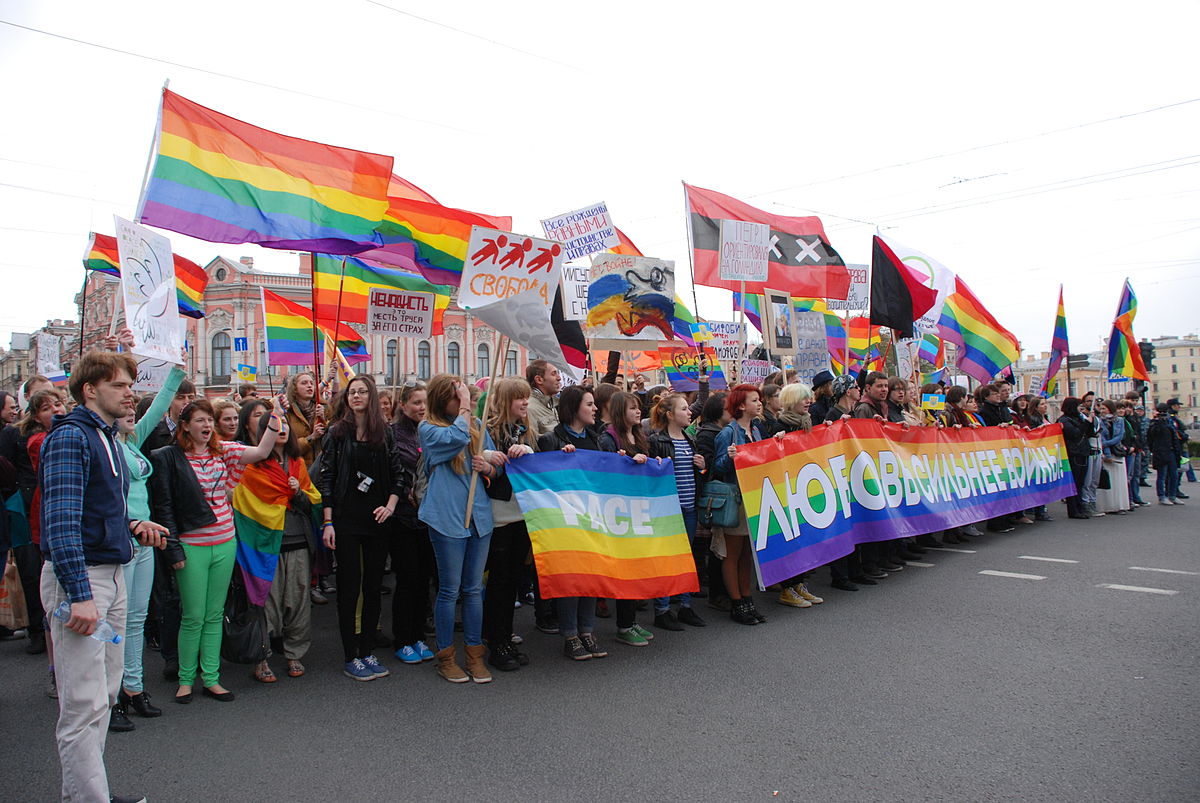In Russia, the state hems in the identity of its citizens

A pro-LGBTQ+ protest in Saint Petersburg, Russia, photographed in 2014.
Such protestors would be labeled “extremists” under a new ruling.
Jonah Carlson - At the end of November, Russia’s Supreme Court declared the global LGBTQ+ movement an “extremist organization.” The movement allows Russia to put activists in jail for up to a decade. Neil MacFarquhar explores the ramifications of the action in a recent article published by the New York Times.
Identity is a crucial element for understanding how people interact with the institutions around them. One important identity in the political space is national identity, which attaches a person not only to a place and culture but also to the state. In the case of Russia, this is predominantly the “Russian” identity. Yet other identities are important as well, such as gender, race, or sexual identity, all of which play roles in defining one’s position in the world. MacFarquhar places the recent move to securitize LGBTQ+ politics as part of a larger movement, orchestrated in large part by President Vladimir Putin, to protect what Putin has declared “Russian traditional values.” Putin appears to consider the LGBTQ+ movement as a form of Western cultural invasion and a “threat” to the Russian state, mirroring rhetoric he has used to justify other crackdowns. By permitting the Supreme Court’s decision, Putin has further forced LGBTQ+ Russians to choose between their national and sexual identities, permitting further division in Russian society.
Though already an authoritarian, Putin has introduced a plethora of new authoritarian reforms by using the ongoing war in Ukraine as justification. Here, we can see how nationalism is used to protect the actions of the Russian state. By criminalizing action that he perceives to be outside of the traditional Russian nation, Putin is increasingly using the identity of Russia’s population as a way to enhance his grasp on the state’s power and rally support for the war. Yet, through doing so, Putin may alter the way Russians choose to connect with their national identity, producing cultural ripple effects for the Russia’s future.
Photo source. InkBoB, CC BY-SA 4.0, via Wikimedia Commons.

